A hangover— we have all heard about it; most people have experienced it...and usually more than once! Even if you don’t consume alcohol, you can’t hide from it because Hollywood brought it to the big screens.

Let’s face it—it’s a nasty feeling. However, what is going on in the human body to experience this disaster?
"The Doc" will try to break down the important elements below!
The Physiology of the Hangover
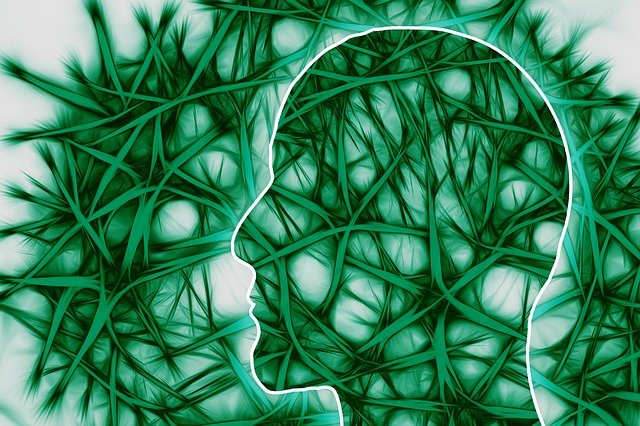
What causes the terrible symptoms of nausea, headaches, muscle weakness, cloudy thinking, and other GI disturbances?
I will begin by stating that there is NOT one cause. There are many problems that occur the morning after having (let’s say) too much fun with ethanol.
Build up of Acetaldehyde
In my opinion, this is probably the main culprit.
Don’t worry—I won’t go deep into chemistry here!
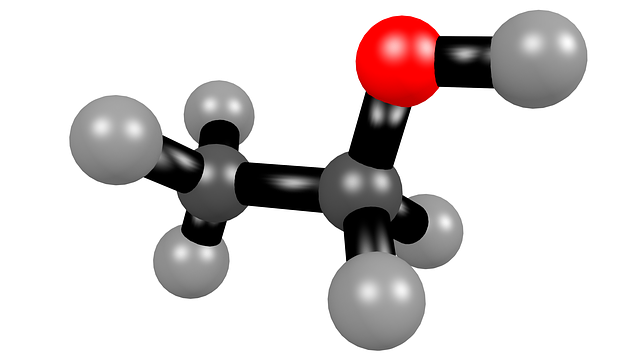
Picture of Ethanol. Link
Essentially ethanol when consumed is metabolized by acetaldehyde dehydrogenase (ALDH) in the liver, which results in a build-up of acetaldehyde. When the quantity of acetaldehyde is not too high, ALDH can further break-down this to acetate (1).
However, it may take 24 hours for this to occur after consuming large quantities of ethanol.
Simple Terminology: The liver can usually deal with small amounts of ethanol (alcohol) consumption. However, when one drinks too much ethanol, the ALDH in the liver cannot function well enough to metabolize the acetaldehyde, and its toxic effects can be felt for around 24 hours.
Some side notes: It is known that asians have more problems breaking down acetaldehyde, which can lead them to have more of a “hangover” feeling (1).
Another interesting point is the drug, disulfiram, which is used to combat alcoholism by giving one the "hangover" feeling while drinking ethanol.
Why you may ask? Simple—I already taught you all you need to know. Disulfiram inhibits ALDH so more acetaldehyde builds-up.
So this is why I hypothesize that while there are other causes of the “hangover,” the build-up of acetaldehyde is the number one reason.
A counter-argument can be found in a 2010 study that found that the level of acetaldehyde did not correlate with the severity of symptoms (2). People’s experiences of feeling will always differ, and that is why I don’t agree with this conclusion. In addition, finding that asians as well as people who ingest drugs that lead to a greater build-up of acetaldehyde, help support my conclusions.
How Does Acetaldehyde Cause These Symptoms?
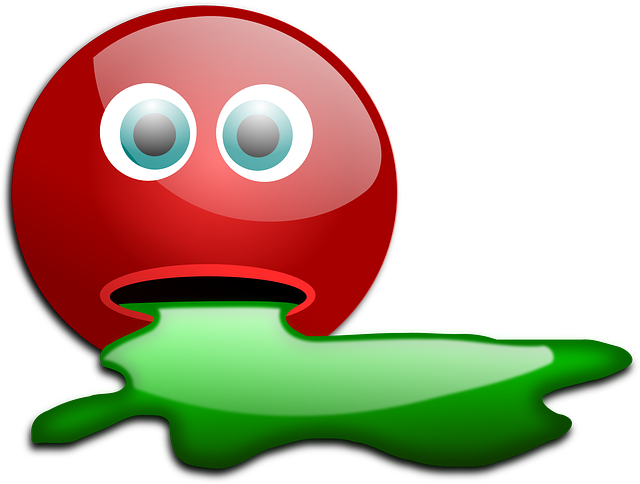
Warning: This part may get boring for people not into science!
Great question! Since people experience symptoms differently, it is hard to be conclusive. Acetaldehyde activates the sympathetic nervous system and also causes vasodilation as in facial blushing (3).
While I was unable to find much on how it causes headache and nausea, the vagus nerve (parasympathetic) has been shown to be responsible for these symptoms. My theory would be that acetaldehyde “throws-off” the balance between the parasympathetic/sympathetic systems, resulting in these common symptoms.
Furthermore, other studies have found that during alcohol consumption, acetaldehyde activates opioid receptors (1). So while people may hate the feeling of acetaldehyde the next morning, acetaldehyde may be the reason people choose to keep drinking “in the moment!”
Simple Terminology: Acetaldehyde is a toxin that leads to the activation of the “flight or flight” response, which for one reason or another, leads to the common symptoms present in a “hangover.” The interesting thing is this same toxic compound could be the reason people choose to keep drinking due to activation of opioid receptors in the brain! A love and hate relationship for sure!
Other Causes of “The Hangover”

There are many more theories and explanations, but I will only cover a few more
—Cytokines and Prostaglandins
In 2003, a study showed an increase of cytokines and prostaglandins after alcohol consumption (2). Cytokines and prostaglandins lead to an inflammatory response in the body... and just makes one feel bad. This is why many people probably take NSAIDS like naproxen after drinking. Don’t do this! While these drugs will decrease the inflammatory response, it is very hard on the stomach and kidney after drinking. For more on this check out my post on NSAIDS and kidney injury here.
—Dehydration/Electrolyte Imbalance:
Simply put, alcohol is a diuretic. The more you drink, the more you urinate. If one does not drink a lot of water while drinking, they will be very dehydrated the next day. This will further lead to an activation of the sympathetic nervous system (an example would be an increased heart rate).
Everyone knows that you don’t feel as well when dehydrated, and this may add to the symptoms. Dehydration also leads to bad headaches because of the release of anti-diuretic hormone (ADH). ADH is released when dehydrated, which essentially allows the kidneys to reabsorb more water. The systemic organs/circulation will essentially “grab” more water from the brain leading to a temporary decrease in brain volume. This decrease often causes pain signals within the brain itself (1).
Since we also lose lots of electrolytes when urinating, often a person’s electrolytes like potassium are much lower after a big night of drinking. This can easily lead to symptoms of fatigue and muscle cramps.
—The Color of the Drink
I bet a lot of people wondered about this one. The percentage of alcohol increases hangovers (obviously), but how about the color? For instance, vodka or bourbon?
A study done at Brown University found that vodka drinkers experienced less hangovers than bourbon drinkers (4). Darker colored alcohol has more toxins and generally leads to more acetaldehyde build up!
What is the Cure for A Hangover?
That is the million dollar question! There are many supplement companies that say they have the “cure” but none have shown much promise in actual studies. From looking clearly at a physiologic perspective, staying very well hydrated while drinking will decrease some of that pain the next day. Drinking sports drinks might be a better option because they will replenish electrolytes as well! However, acetaldehyde build-up will still occur, and hence, not a cure for the hangover. NSAIDS may decrease the inflammation aspect of the hangover, but that is NOT a healthy choice. Just don’t do it!
If there was some medication that could increase the metabolism of acetaldehyde (not sure if this has been tried) then I would hypothesize it would help a lot.
Time is the best cure at the moment…..or not drinking (haha).
I hope you enjoyed the article, and I start my first job as a resident physician on Monday!
Feel free to follow me for more posts on music/health/science/travel!

Sources:
1)https://www.scribd.com/document/195251362/Physiology-of-Hangover
2) http://www.clinicalcorrelations.org/?p=4395
3)https://www.ncbi.nlm.nih.gov/pubmed/22455355
4) https://www.wired.com/2009/12/dark-liquor-makes-for-worse-hangovers/
Images:
All are public domain on pixabay.com and links are provided below image.
Edits:
Minor grammatical changes.
I also changed the example of metronidazole (which is "classically" known to cause a disulfiram-like reaction to an example of disulfiram itself). Studies have not conclusively shown an increase in acetaldehyde with its use. However, nausea and vomiting occurs in some patients with its use, which can increase the "hangover" feeling. There are other drugs with disulfiram-like reactions as well.
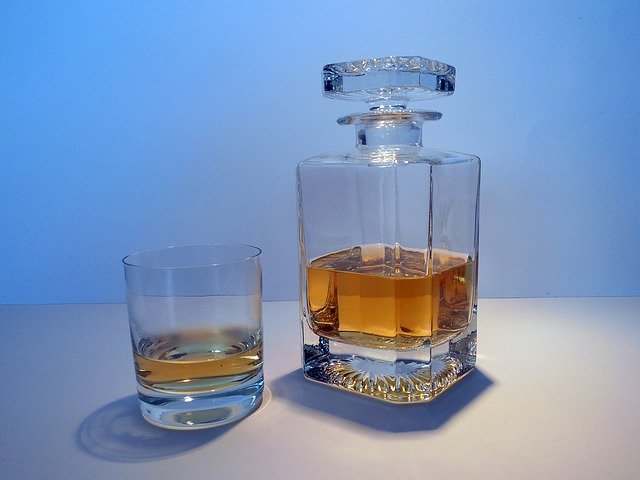
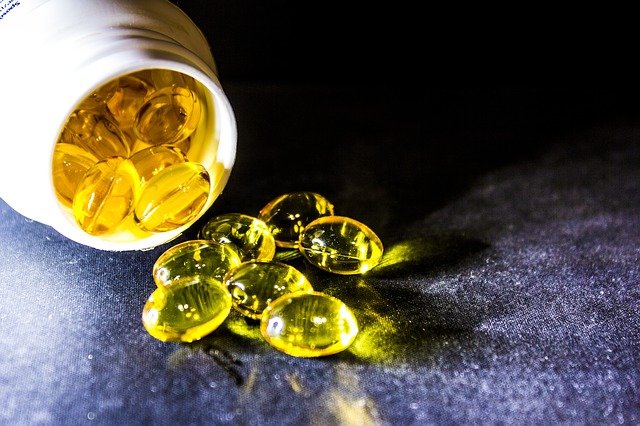
This post received a 7% upvote from @randowhale thanks to @thecryptofiend! For more information, click here!
Downvoting a post can decrease pending rewards and make it less visible. Common reasons:
Submit
Awesome! Thanks @thecryptofiend...just saw this!
Downvoting a post can decrease pending rewards and make it less visible. Common reasons:
Submit
Nice explanation - there are likely other causes too - I have a pile of research on this somewhere because it was something I was always curious about - I might dig it out if I haven't lost it (think it might be in storage).
Downvoting a post can decrease pending rewards and make it less visible. Common reasons:
Submit
Thanks for the support on this post! Much appreciated. Yeah, I am for sure curious to see what else you found in your research.
Fun topics like these will hopefully make people more aware of what is "happening" in their body versus just what they "feel."
Residency has just started and I think life is about to get pretty busy haha.
Downvoting a post can decrease pending rewards and make it less visible. Common reasons:
Submit
Lol that is an understatement. So glad I don't have to do that again!
Downvoting a post can decrease pending rewards and make it less visible. Common reasons:
Submit
I will have to be creative to find the time to write articles....I start on the family medicine service July 1st. I'm sure there will be some good things to write about after being on the service.
Downvoting a post can decrease pending rewards and make it less visible. Common reasons:
Submit
Very good post for the weekend, where this information might be necessary for some! No easy answer except stay hydrated.
But one thing that works for me is a certain easy to make drink I came up with. Chocolate Boost and Vodka! The Boost gives nutrients and coats your stomach a bit, and it goes really well with regular vodka or cherry flavored vodka. I never got a hangover from this. But remember, moderation!
Downvoting a post can decrease pending rewards and make it less visible. Common reasons:
Submit
Thanks for reading! I bet your remedy with boosts replenishes those nutrients to some degree. In addition, vodka is for sure a better option compared to a darker alcohol.
I thought it would be a fun one before I start my job. Cheers!
Downvoting a post can decrease pending rewards and make it less visible. Common reasons:
Submit
Great job (as usual) and very few views (a crime). Re-steeming to hopefully get you a bit more exposure.
You are probably correct, and your statement is made further correct by acknowledging that there are a variety of other reasons. The interplay between acetaldehyde concentration and dehydration may explain the 2010 study, where a dehydrated state exacerbates the negative effects from acetaldehyde and some people who didn't see a correlation between acetaldehyde and hangover symptoms may have just been more hydrated.
Downvoting a post can decrease pending rewards and make it less visible. Common reasons:
Submit
Thanks for letting more eyes see this post! Much appreciated. It felt way too long since my last health post, and this one was fun to write.
I think your conclusions could easily be correct. I briefly looked over that study and would need to see more of their discusssion.
What is weird to me is why we haven't found a drug to clear it out of system sooner the next day! Any ideas on why that would be difficult?
Thanks for the support as always!
Downvoting a post can decrease pending rewards and make it less visible. Common reasons:
Submit
The body already has a few enzymes which do that acetaldehyde dehydrogenases
I suppose one could look for a drug which activates the activity of one of these enzymes.
When people are alcoholics they are given an inhibitor drug for these enzymes, which results in really really bad hangovers (as a deterrent for drinking). That drug is Disulfram. Making an inhibitor is much easier then making an activator. You would need to identify a compound which is able to allosterically bind to and cause a conformational change in one of these enzymes resulting in it being MORE active catalytically (unless there was already such a regulatory mechanism in place). I don't know of any native regulation like that for these enzymes, and so it may not be possible to develop such a small molecule.
Another possible route would be to find something which binds to the DNA directly (like around the promoter) and increases (upregulates RNA transcription) expression of the enzymes in the liver, but that is even more difficult.
I don't think there is an easy solution. Which is likely why there isn't one already haha.
Downvoting a post can decrease pending rewards and make it less visible. Common reasons:
Submit
Thanks for this detailed response. Taking me back to chemistry/pharmacology is always a good thing (especially now that I can prescribe). Makes a lot of sense on how blocking (competitively I presume) would be much easier.
That is the million dollar drug though.
The DNA part seems even harder in a way, but if the molecule is too small to allosterically bind... maybe that would be an easier way.
Hydrating seems like a good idea, but maybe we will never find the cure!
Downvoting a post can decrease pending rewards and make it less visible. Common reasons:
Submit
Its not a factor of size, but rather the possibility of binding anywhere actually inducing a change which affects enzyme activity. It may not be physically possible.
Downvoting a post can decrease pending rewards and make it less visible. Common reasons:
Submit
Good to know! Thanks a lot.
Downvoting a post can decrease pending rewards and make it less visible. Common reasons:
Submit
very good content, well done :)
Downvoting a post can decrease pending rewards and make it less visible. Common reasons:
Submit
Thanks for reading!
Downvoting a post can decrease pending rewards and make it less visible. Common reasons:
Submit
I have a hangover right now... I'll go with the never drinking again... Until next weekend :|
Downvoting a post can decrease pending rewards and make it less visible. Common reasons:
Submit
It was no mistake to post on Saturday haha. Good luck on your recovery!
Downvoting a post can decrease pending rewards and make it less visible. Common reasons:
Submit
Only time, painkillers, water , maybe an IV drip or a few more beers can solve this! haha
Downvoting a post can decrease pending rewards and make it less visible. Common reasons:
Submit
IV drip would probably help with some of the issues haha
Downvoting a post can decrease pending rewards and make it less visible. Common reasons:
Submit
Take it before you drink and before you go to sleep. Seriously.
Downvoting a post can decrease pending rewards and make it less visible. Common reasons:
Submit
For someone who normally hates science, I found this intriguing, as well as very informative. Thanks for sharing and making science enjoyable.
Downvoting a post can decrease pending rewards and make it less visible. Common reasons:
Submit
That is always the idea. Take a concept, (try to) make it easy to understand, and then make it applicable to the reader. Thanks for reading!
Downvoting a post can decrease pending rewards and make it less visible. Common reasons:
Submit
In that case, Mission Accomplished!
Downvoting a post can decrease pending rewards and make it less visible. Common reasons:
Submit
Very thorough Doc! I don't drink anymore because of all of these reasons, and now I've got some info to spout at my friends when they try to convince me to do so! Thanks for the post. I look forward to seeing more of your content in my feed.
Downvoting a post can decrease pending rewards and make it less visible. Common reasons:
Submit
Haha I think you are picking the smarter choice! I would have to do more research, but it also seems to be a trend that the effects increase as we get older.
Thanks for the read....I always get excited to do health posts!
Downvoting a post can decrease pending rewards and make it less visible. Common reasons:
Submit
Great post! I did not know that clear drinks are "less" toxic than the others(relatively speaking of course). I am definitely going to show it to the biological analyst I know. She will love it.
Cheers.
Downvoting a post can decrease pending rewards and make it less visible. Common reasons:
Submit
Sounds good! Thanks for stopping by for the read! At least the metabolites of darker alcohol are worse. Cheers.
Downvoting a post can decrease pending rewards and make it less visible. Common reasons:
Submit
Interesting that different colored liquors could have an affect on the hangover the next day. I had always just assumed the only thing that mattered was the alcohol content. When I go out I try to avoid most cocktails (too much sugar) and alternate drinks with glasses of water. That helps me avoid a hangover the next day and is also lighter on the wallet.
Downvoting a post can decrease pending rewards and make it less visible. Common reasons:
Submit
Haha I think you have some sound choices right there! Alcohol content I would rank number one but the color choice will add to those effects according to the metabolites and study done about 7 or 8 years ago. Thanks for reading and keep hydrated!
Downvoting a post can decrease pending rewards and make it less visible. Common reasons:
Submit
Many people use NAC or N-acetylecysteine , which comes from the amino acid l-cysteine, to prevent hangover. As far as I know, NAC helps breakdown of acetaldehyde. Here is a study that shows NAC can reduce the ethanol induced damage in mice only when taken prior to drinking , but if it is taken after taking alcohol, it does the opposite
https://www.ncbi.nlm.nih.gov/pubmed/16439183
However I didn't knew that alcohol activates opioid receptors too. This is something totally new to me.
Downvoting a post can decrease pending rewards and make it less visible. Common reasons:
Submit
Will take a look at that study too. Thanks for reading.
Downvoting a post can decrease pending rewards and make it less visible. Common reasons:
Submit
I was put on Metronidazole quite a few times for an antibiotic reistent super-big C.Diff infection that ruined my life over the 18 months that it ran its course. I drank without issue.
This contraindication appears to be be a myth. It always disturbs me that both doctors and pharmacists continue to push this myth, even with warning labels, yet there is no evidence. I have consistently been stunned at how rarely men and women of medicine are scientific at heart.
https://www.ncbi.nlm.nih.gov/pubmed/25223673
"It is common practice to warn against intake of alcohol (ethanol) when taking metronidazole because of the risk of an effect similar to disulfiram (Antabuse)."
"No in-vitro studies, animal models, reports of adverse effects or clinical studies provide any convincing evidence of a disulfiram-like interaction between ethanol and metronidazole."
"The warning against simultaneous use of alcohol and metronidazole appear to be based on laboratory experiments and individual case histories in which the reported reactions are equally likely to have been caused by ethanol alone or by adverse effects of metronidazole. Recent research does not confirm a clinically relevant interaction between ethanol and metronidazole."
https://www.ncbi.nlm.nih.gov/pubmed/12022894
"Metronidazole did not raise blood acetaldehyde or have any objective or subjective adverse effects when used together with ethanol." ... "This study shows that metronidazole does not have an effect on blood acetaldehyde concentrations when ingested with ethanol and does not have any objective or subjective disulfiram-like properties."
Downvoting a post can decrease pending rewards and make it less visible. Common reasons:
Submit
Disulfiram doesn't interact with ethanol. It inhibits acetaldehyde dehydrogenase.
Downvoting a post can decrease pending rewards and make it less visible. Common reasons:
Submit
The studies still show no deleterious link between alcohol consumption and metronidazole, no matter how far along their metabolism you want to go.
Downvoting a post can decrease pending rewards and make it less visible. Common reasons:
Submit
I don't know anything about metronidazole (other than it being an antibiotic). So okay. I was just clarifying the statement above. Cheers.
Downvoting a post can decrease pending rewards and make it less visible. Common reasons:
Submit
I will have to look more into that. Thank you for providing a pubmed article as well.
As far as my article, the point is that if drugs (whether metronidazole is included or not) raise acetaldehyde, then they will get a hangover feeling. Disulfiram itself is a great example of that.
As a biology major in college and taking many science courses in medical school, I feel my heart has plenty of science in it. I would also add that medical doctors have to also have many other qualities. Medicine in my eyes is also an art. I wrote an article on "The Art of the Physical Exam." You also have to be a good listener/detective to discover things.
Glad you are C-diff free.
Studies will always change our perspectives in medicine, and when we have to learn hundreds of thousands of facts, it is impossible to look up all the studies on each of those facts.
Since you had a personal experience with this drug, you took a lot of time to research it. You are a mini-expert now on metronidazole (a good thing) because it can shape my perspective as well by reading more. Medicine is a life-long learning process.
I would only ask that you don't hold physicians to a standard where if you find one thing that you disagree with in the article that it shapes your perspective about us. I may be a doctor, but I also can't be perfectly knowledgable about every study presented on every medication.
Cheers.
***I also changed that section of the article to reflect some research I just did. I now agree that evidence does not support an increase in acetaldehyde with metronidazole (although it was classically taught that way in medical school). However, in some individuals it does cause a "like" reaction due to the fact that metronidazole increases nausea and vomiting in some patients independently of alcohol. The combination can cause a disulfiram-like reaction....but not due to acetaldehyde build up.
I would also strongly advise patients to not drink while having C-Diff. Combining a diuretic with severe diarrhea is a very poor choice and can easily lead to severe dehydration.
Downvoting a post can decrease pending rewards and make it less visible. Common reasons:
Submit
Of course, I don't think my Dr will ever advise me to drink =P no matter the situation. Maybe if him and I were in a bunker together at the end of the world. I've just met too many nurses and doctors who lack a basic grasp of even what science is, and some are very behind the research even in their specialist field. My GP believes in the great flood, and that's fine, but he denies me when I tell him there's no evidence for it in the strata. Instead he says, "Hmm, I think there is..." He sent me bible-camp videos to watch so I thought would send him a few science videos to watch. But he would not watch them.
I don't care, he's a compassionate man who listens and cares. That is far more important than off-the-cuff knowledge. These days, with the democratization of information, we should all be experts in our own medical conditions. Like a true mind of science you've altered your position now that new information has come to light. That is science.
Downvoting a post can decrease pending rewards and make it less visible. Common reasons:
Submit
very good
Downvoting a post can decrease pending rewards and make it less visible. Common reasons:
Submit
Thanks for reading!
Downvoting a post can decrease pending rewards and make it less visible. Common reasons:
Submit
Hydrate, Hydrate, Hydrate.
Vitamin b1
NAC before drinking
l-cysteine
Taurine
Milk Thistle
Sugary drink like orange juice... no hangover.
Downvoting a post can decrease pending rewards and make it less visible. Common reasons:
Submit
Great post, I am also a medical student (only in my first year) and would really appreciate any comments you have on my posts. Thanks @tfeldman
Downvoting a post can decrease pending rewards and make it less visible. Common reasons:
Submit
Hi! Have you heard about @krwhale? It is similiar with @randowhale. For your information please click on.
Downvoting a post can decrease pending rewards and make it less visible. Common reasons:
Submit